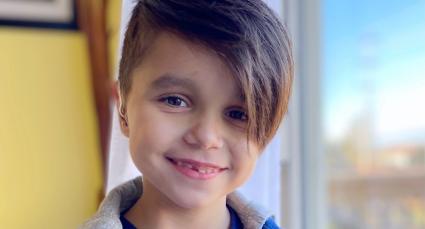Sindi Lee, a mother of four, knows all too well what it’s like to almost lose a child. Twice in her life, two of her children have faced life-threatening emergencies and needed critical emergency care.
In 2017, Sindi noticed that her weeks-old infant daughter, Maci, was breathing faster than usual. After calling 811 for health advice from a registered nurse, Sindi took Maci to their local hospital, where doctors discovered she had an enlarged heart. That same day, Maci was transported to the IWK by ambulance for further investigation and care.
At the IWK, a cardiologist determined Maci had a life-threatening congenital heart defect and would need open-heart surgery to repair it. The following day, Maci was airlifted to SickKids in Toronto for surgery and returned to Nova Scotia after a month-long hospital stay.
After arriving in Halifax, Maci returned to the IWK for a scheduled overnight stay. However, doctors discovered Maci had an irregular heartbeat, and she was admitted for 22 days before finally returning home with her family.
Maci, now five-years-old, is doing well and is followed closely by the Children’s Heart Centre at the IWK.
Almost five years after her daughter’s life-threatening health situation, Sindi was at the IWK’s Emergency Department for a second time, facing another life-threatening emergency with one of her children.
In early 2022, her 15-year-old son, Caden, was struck by a vehicle while walking to a nearby convenience store. He was taken by ambulance to the Aberdeen Hospital in New Glasgow for a CT scan and later by a critical care ambulance to the IWK’s Emergency Department for emergency trauma care.
Caden was admitted to the IWK’s Pediatric Intensive Care Unit (PICU). He was placed on a ventilator to help him breathe. He also had an intracranial pressure (ICP) monitoring device inserted to determine if there was pressure or swelling in his skull from a brain or head injury. Thankfully, Caden’s ICP pressure was in the acceptable range; however, he required deep sedation to maintain his pressure, and there was still uncertainty about whether Caden would survive.
Caden’s MRI results showed he had a severe traumatic injury to his brain stem. He also sustained a fractured thoracic vertebra, significant lung damage and broken ribs. Despite his injuries, they were more optimistic he’d survive, but whether he would be the Caden they knew before the accident, they didn’t know.
A week following the accident, Caden’s care team removed his breathing tube and, soon after, his feeding tube and all other access lines. Over a few days, Caden began to ask for water and correctly respond to questions about what his name was and where he lived. With every passing day, Caden’s health slowly improved. He was moved out of PICU and began rehabilitation.
“If you didn’t know that he was hit by a car and suffered such severe injuries, you just wouldn’t know that it happened to him,” says Sindi.
On March 10, after spending 31 days at the IWK, Caden was finally able to return home and finish what he set out to do on February 7. “We went to the store, and he bought the candy he went for that night,” shares Sindi.
For Sindi, the IWK is hope. “Without the IWK, I wouldn’t have two of my children. There are no words you can say that convey that appreciation for a group of people. I’m just so grateful it’s there.”



